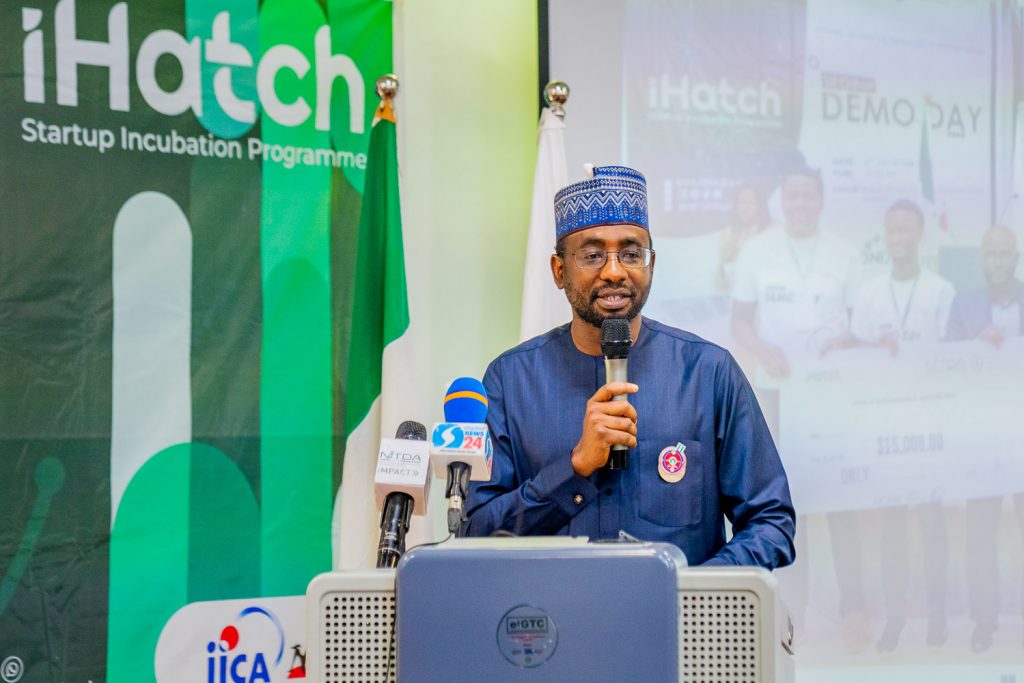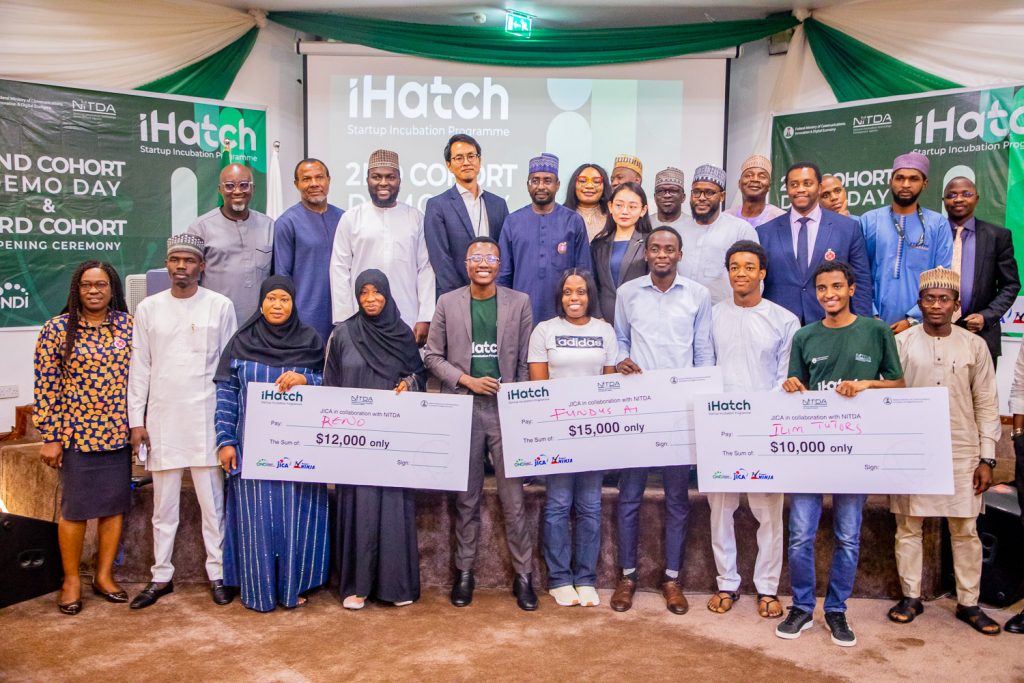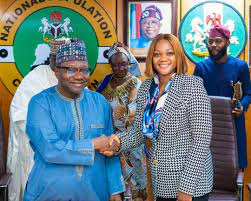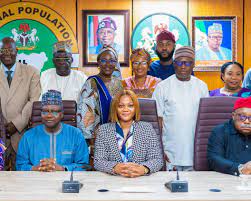Opinion
Governor Fintiri’s Transparent Leadership and Prudent Management of Funds in Adamawa state
Published
1 year agoon
Governor Fintiri’s Transparent Leadership and Prudent Management of Funds in Adamawa state
By Marcus Kufana
There is no doubt that Peoples’ Democratic Party (PDP) – led Government in Adamawa State has proved that it remains the best, if not the only, alternative in the 2023 general elections.
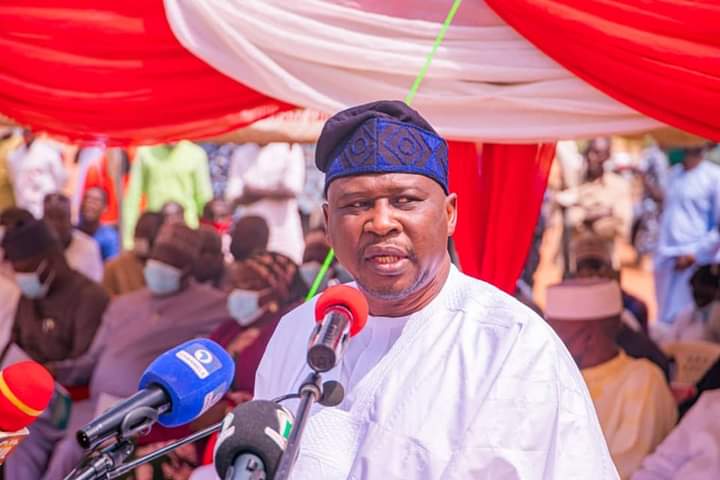
Gov. Fitirin
The government under Governor Fintiri has resolved to serve the people and at the same time ensure that the lives of all the citizens of Adamawa is improved.
It is the government that is with the philosophy of carrying everyone along with the relentless effort to ensure that there is security, unity and economic development.
This is articulated in the 11-Point Agenda of the PDP administration under Governor Fintiri in last three years.
In the last three years, the administration of Governor Fintiri of Adamawa state have demonstrated a commitment to fiscal and budgetary discipline while trying to be prudent in the management of the resources of the state.
This fiscal realism is what led to the budget size of N244 Billion earlier approved by his predecessors in 2019 to be reduced to N143 Billion for 2020 which was considered fiscally realistic even for 2019. Subsequently, in 2021 the budget size was N140 Billion in view of the COVID-19 Pandemic and its attendant global economic uncertainties.
After the shocks of COVID-19 with the hope for global economic rebound, Governor Fintiri presented a budget of One Hundred and Sixty-three Billion, Six Hundred and Twenty-nine Million, Nine Hundred and Ten Thousand, Forty Naira (N163,629,910,040.00), for the 2022 fiscal year.
All these were necessitated by the amount of revenue generated internally, Federation accounts, Capital receipts, Grants and other sources.
In the service of the good people of Adamawa state, Governor Fintiri is very to ensure that no one is left behind and nothing is left untouched. In doing so, the governor has not lost sight of the need to have a realistic Budget where expenditures are carefully matched against revenue.
From 2019, Governor Fintiri has ensure that every budget proposals is implemented above 80 percent especially in the 11-Point Agenda of his administration.
Moving forward beyond 2023, governor also recalibrated the governance policy direction into an 8 – Point Agenda to consolidate on the gains of his administration.
Governor Fintiri has again presented the details of the 2023 Proposed Annual Appropriation Bill to the state House of Assembly and task them to review the performance of the subsisting Approved Budget in terms of the Actual Revenue accruals to the State and in particular on what they were expended on within the last three quarters of the financial year.
This is a demonstration of transparency and accountability for Governor Fintiri’s stewardship in the State.
This review as a matter of tradition is also meant to reflect and evaluate past performances, correct the shortfalls and consolidate on his successes in order to move the State forward.
In retrospect, early this year the state House of Assembly approved the total sum of N163,629,910,040.00 billion for the 2022 fiscal year to finance both Recurrent and Capital Development Programmes of the State. Out of this, the sum of N98,855,243,040 billion which represents 60% of the total Approved Annual Budget Estimate was earmarked for Recurrent Services and N64,774,667,000.00 billion which represents 40% of the total Approved Budget was earmarked for Capital Development Programme and Services in the State for the fiscal year.
It will be recalled that during the implementation of 2022 Budget, the sum of 47,769,936,924.99 was expended from January to September, 2022 which represent 48.3% of recurrent expenditure and the sum of 17,723,289,190.53 representing 27.45% of the Capital Expenditure within the same period.
In this regard therefore going by the trend of recurrent expenditure before the end of the year, the recurrent require the sum of 200,000.00 million to augment excess recurrent expenditure that deem it necessary to vire from Personnel to Overhead and this necessitated the change of recurrent expenditure to 99,055,243,040.00 Billion and Capital Expenditure to 64,574,667.00 that was passed by this honorable House at the end of October, 2022.
As a visionary leader, the major policy objectives of the 2022 Budget were inline with the Vision 20:2030 National Perspectives Plan, as well as the Sustainable Development Goals that will continue to pursue the anticipated rapid economic growth of Adamawa State. It was also in line with the Federal Government’s directives that the state will continue with the International Public Sector Accounting Standards (IPSAS) and State Fiscal Transparency and Accountability (SFTAS) Programme for Result which is in full implementation in the State.
The administration of Governor Fintiri will among other measures will continue to ensure that some of the State’s untapped sources of Internally Generated Revenue are harnessed, and adequately tapped towards the improvement of the Revenue generation in the State within the fiscal year.
Macroeconomic Objectives, Policies and Strategies for 2023
The Administration of Governor Fintiri is also planning to increase Internally Generated Revenue and reduce the fiscal deficit.
The administration has created a good governance environment in which the conduct of public affairs is done in a responsible, accountable and transparent manner.
This is the commitment of the Fresh Air Administration. The priorities of the governor in this regard is fighting corruption, strengthen the rule of law and ensure sound public financial management. It is in this regard that the governor has ensure that there is financial autonomy to the Local Governments and the two arms of government which are the legislature and the Judiciary.
The focus of the last Budget in Adamawa state was on stabilization and to build both Human and Capital Development programmes that fall within the priority attention of this administration.
This made Governor Fintiri to tag the 2023 budget as the Budget of Consolidation. It is formulated in line with the 2023-2025 Medium Term Expenditure Framework (MTEF) and Fiscal Strategy Paper as a matter of Economic Planning Policy.
No wonder that the 2023 appropriation Bill highlights the draft estimates of the State’s Revenue and Expenditure and provides broad outline of the plans and programmes that this administration intends to implement with zeal and commitment to enhance the socio-economic development of Adamawa State.
This has made the State Government to proposed a Budget of One Hundred and Seventy-five Billion, Nineteen Million, Fifty-four thousand and Sixty Naira (N175,019,054,060.00), for its Projects and programmes in the 2023 Fiscal year.
The Proposed Budget of N175,019,054,060.00 for 2023 Fiscal year is made up of recurrent expenditure of 105,011,432,436.00 Billion representing 60% of the total Budget while the balance of 70,007,621,624.00 Billion is for Capital development projects representing 40%. As a visionary administrator, Governor Fintiri will continue to ensure that all ongoing projects, especially the ones started by this Administration, are completed which is in line with the principles of this administration and the aspirations of the people.
The Board of Internal Revenue has been rejuvenated and is being reformed with appreciable improvement in monthly revenue collections and other economic setbacks.
The current situation where petroleum products contribute paltry amounts to the Federation Account indicates that only States that have improved their IGR can survive in the very near future. Some of the outstanding achievements of the State BIRS includes; The reviewing and passage of revenue laws in the state to address grey areas of revenue collections.
This has paved way for increased revenue generation in the State. All revenue titles in the state have been codified and aligned to the standard practice of International Public Sector Accounting Standard (IPSAS). This has further aided the revenue Agency to block leakages as non performing revenues are investigated.
Governor Fintiri is however optimistic that substantial funds will be received in the next financial year through the World Bank programmes and other funding agencies to finance some of the priority projects that have high revenue yielding potentials.
In recurrent expenditure, the Government will continue to look into measures and modalities of how to offset the backlog of Gratuity and Pensions of retired Civil Servants within the next fiscal year and to ensure prompt payment of Personnel Cost and release of Overhead cost.
In 2022, Government budgeted the sum of 64,774,667,000.00 Billion for Capital expenditure and was later Revised to 64,574,667,000.00.
However, only N17,723,289,190.59 Billion was expended as at 31st August, 2022 on priority projects and programmes in Works, Education, Health, Agriculture, General Administration, etc. All of these projects have direct bearing on the lives of the people. Government has proposed to spend the sum of 70,007,621,624.00 on Capital Expenditure in 2023 Fiscal year.
The highlights of the capital expenditure side of the budget are execution on key projects which will add value to the lives and well-being of the people.
Prominent among these projects are: the construction of a Super Highway from FGGC Yola to Yola-Town through Yolde-Pate; establishment and construction of three Mega Secondary schools (One in each of the senatorial districts which will serve as Special schools for the most talented of students; establishment of High-tech Vocational Training Centers to serve as Information technology skill incubation hub for the development of Youths.
As a transparent Governor, His Excellency Governor Umar Fintiri of Adamawa state is hoping that the budget proposal of Seventyfive Billion, Nineteen Million, fifty-four thousand and Sixty Naira (N175,019,054,060.00), Tagged Budget of Consolidation, for the year 2023 ending 31st December, will transform the state to greater heights.
You may like
Opinion
IHATCH: JAPAN GOVERNMENT TASK TO LEVERAGE NIGERIA’S YOUTHFUL POPULATION- DG NITDA
Published
5 months agoon
December 3, 2023
By James Ishaku
As part of the current administration of President Bola Tinubu’s commitment towards creating meaningful opportunities for Nigerian youths, the Director General Of the National Information Technology Development Agency (NITDA), Kashifu Inuwa CCIE has called on the government of Japan to leverage on the youthful population through strategic talent partnership that will nurture and build a workforce that can be exported.
The DG made the call at the Ihatch startup incubation programme 2nd cohort demo day and 3rd cohort opening ceremony organised by the subsidiary of the agency, Office for Nigerian Digital Innovation (ONDI), in partnership with Japan International Corporation Agency (JICA) in Abuja.
Inuwa noted that the ihatch 5-month free intensive incubation programme executed by the ONDI and hosted within the National Centre for Artificial Intelligence and Robotics (NCAIR) is designed to help Nigerian tech entrepreneurs refine their business ideas through a series of coaching, lectures, and booth camps to develop scalable and adaptable business models that willfocus on youth, innovation, entrepreneurship, and technology.
He added that the incubation programme will be held simultaneously in Abuja, Lagos, Port Harcourt, Gombe, and Kano and JICA has agreed to extend the Fourth Cohort across each of the 36 States and the FCT. This is to enable wider reach and to stimulate the startup ecosystems across the States.
The DG stated that not fewer than 1,218 applications were received for the Second Cohort and the number was pruned down to 8 startups, comprising 16 persons, a Founder and Co-Founder for each startup, after undergoing levels of rigorous selection process conducted by a panel of judges, comprising experts in diverse areas of technology and innovative entrepreneurship.
He explained that the selection process assessed the startups’ ideas based on the criteria of profitability, scalability, social impact, idea technique, competitive advantage, experience, and a clearly defined future roadmap.
Inuwa further revealed that a total of 11,183 applications were received from across the 6 geopolitical zones for the Third Cohort. This culminated in the selection of the top 8 startups, comprising 16 founders in total that will participate in the Third Cohort that was launched.
He added that 16 startups that participated in the first and second cohorts of the iHatch incubation programme have moved on to achieve remarkable success in the areas of job creation, funding, participation in events, and valuable partnerships which have created a combined total of 179 direct jobs in the span of agriculture, health, education, and e-commerce sectors.
The DG further asserted that apart from the total grant of US$45,000 (US$15,000 each) for Proof of Concept (POC) to the top 3 startups in the first cohort, some of the startups have raised some funding through other sources. Xolani Health (a health tech startup from the first cohort) secured a grant worth US$155,000, BetaLife (a health tech startup from the first cohort) secured an angel investment of US$60,000, Gifty (an e-commerce startup from the second cohort) got a grant of USD$8,000 while two other startups from the first and second cohorts respectively, raised a combined total grant of US$6,000.
Inuwa affirmed the agency’s commitment to working with relevant stakeholders and partners towards the successful implementation of the Nigeria Startup Act (NSA) which will accelerate innovation and provide much-needed jobs for our teeming youths. Leaving nothing to chance in our resolve to nurture the entrepreneurial spirit in our youth to catalyze the Nigerian digital economy to the next level.
The Honourable Minister, Federal Ministry of Industry, Trade and Investment, Doris Nkiruka Uzoka-Anite, represented by National Coordinator, National Talent Export Programme, Dr Femi Adeluyi, applauded NITDA for the various initiatives and programs put in place for the advancement of the tech ecosystem in the country.
Anite noted that the NITDA DG at the Digital Nigeria International Conference 2023 edition harped on the need for Nigeria to become the talent destination of the world where countries will come to seek a workforce that will work with them towards achieving their goals and objectives.
She added that “technology is a pivotal tool in all aspects of life which cannot be overemphasized and the green transition scoreboard global total has reached about $7.13 trillion for export and about $6.6 trillion for importation, the important aspect is that 54% of these activities is digitally edible and prepares people to be effective and efficient in the different sector of the economy is laudable”.
The Minister also appreciated JICA for its relentless efforts toward the advancement of the tech ecosystem in the area of automobile, development, training, scholarships, interventions and a lot more which has impacted the citizens directly or indirectly.
The Ambassador of Japan to Nigeria, Matsunaga Kazuyoshi, represented by Yuzurio Susumu Chief of Nigeria Office in his remarks stated that Nigeria is the most popular country in Africa and the heart hub of entrepreneurship activities aimed towards the advancement of the country.
He added, “With all the challenges faced by insecurity, and limited infrastructures in the country, Nigerian startups are demonstrating remarkable creativity and resilience in developing solutions that other critical social issues in areas such as education, transportation, healthcare and finance”.
He added that the present administration has identified the transformation potential of startups and digitization making it a key factor in diversifying the Nigerian economy from its dependence on oil.
The Ambassador pointed out that startups are seen as a catalyst for business transformation, bringing fresh ideas, innovative technologies and new employment opportunities. Japan has the longest history of technological innovation and entrepreneurship has a significant role in supporting the Nigerian system.
Among those who attended were representatives from both the private and public and the top three (3) startups emerged with cash prices to Fundus AI 1st postion $15,000.00, Reno 2nd postion with $12,000.00 and Ilim Tutors 3rd postion $10,000.00 respectively.
Coker – Odusote: 100 Days at the Helm of NIMC
By Walter Duru, Ph.D
It was Albert Einstein that once said that “setting an example is not the main means of influencing another, it is the only means.” That sentiment expressed by Einstein is the primary essence behind the theory of transformational leadership, which requires passion, charisma, and the ability to motivate others. Transformational leaders are usually very authentic, emotionally intelligent, great listeners, results-focused, visionary, and self-aware.
In just 100 days at the helm of the National Identity Management Commission (NIMC), Engr. Abisoye Coker-Odusote has ushered in a new era of transformational leadership, leaving an indelible mark on the organization. Her eventual confirmation as substantive Director General/Chief Executive Officer of the Commission did not come to many as a surprise.
She did not waste time to hit the ground running and showed commitment to advancing the NIMC’s mission and mandate.
Coker-Odusote has taken steps to streamline National Identity Number (NIN) registration processes, while addressing the long-standing challenges associated with identity registration in Nigeria. This, she is handling through strategic restructuring and the integration of advanced technologies with a view to significantly reduce waiting time and enhance the overall efficiency of the system.
Today, date of birth and other kinds of modifications at NIMC happen within 48 hours. The several years backlog of date of birth modifications she inherited are almost cleared, as she had given a one-month deadline for the same to relevant staff of the Commission.
Again, responses to issues and complaints, such as those whose National Identity Numbers did not hit the NIN Verification Portal are now resolved within 24 hours.
Recognizing the paramount importance of data security in the digital age, the NIMC CEO has taken steps to enhance data security by introducing robust measures to fortify the protection of citizens’ sensitive information. This includes, but not limited to the adoption of cutting-edge encryption technologies and the establishment of a dedicated cybersecurity team.
Her interest in improving service delivery at NIMC cannot be overemphasized. She has concluded plans to ensure regular training and retraining for staff of the Commission, emphasizing customer-centric approaches, to ensure a more positive experience for citizens seeking identity services.
On partnerships, Coker-Odusote, leveraging her extensive network and expertise, has forged strategic partnerships with governmental agencies, private organizations, and international bodies. These collaborations aim to enhance the NIMC’s capacity, foster innovation, and promote information sharing for the betterment of identity management.
Understanding the pivotal role of technology in modernizing identity management, Engr. Coker-Odusote has spearheaded the integration of biometric advancements and artificial intelligence into the registration and verification processes.
This not only improves accuracy, user experience and ease of enrolment, but also positions NIMC at the forefront of technological innovation in identity management. A typical example is the NIMC Contactless Biometric Solution, which delivers a best-in-class fingerprint and facial capture image output quality, powered by Artificial Intelligence. The new solution was unveiled by the commission at the 2023 Identity Day, held in Abuja on September 16, 2023.
In addition, Engr. Coker-Odusote tackled the existing backlog of unprocessed identity requests head-on. Through a combination of strategic staff deployment and redeployment, process optimization, and digitization initiatives, she has made significant strides in clearing the backlog, demonstrating her commitment to prompt and efficient service delivery.
Recognizing the crucial role played by the NIMC staff in achieving organizational goals, the CEO has developed for implementation, a robust welfare programme aimed at boosting morale and fostering a positive work environment. This includes, but not limited to training opportunities, health benefits, and performance recognition initiatives.
Furthermore, in consultation with in-house experts, elaborate public awareness campaigns are being planned, to ensure that citizens are well-informed about the importance and benefits of identity registration. These campaigns are expected to not only educate the public, but also serve to demystify the registration process, encouraging greater participation.
The NIMC DG has concluded plans to take the ecosystem enrolment forward by taking steps to deepen collaboration with ecosystem implementing partners, supporting to ensure the success and optimal performance of the Nigeria Digital Identification for Development (ID4D) Project, a Nigerian Project jointly funded by The World Bank, The European Investment Bank, and the French Development Agency.
Engr. Coker-Odusote’s strategic vision, commitment to efficiency, and emphasis on technological innovation positions NIMC for a future where identity management is not only secure but also seamlessly integrated into the daily lives of citizens.
On anti-corruption, the NIMC DG has left no one in doubt on her determination to sanitize the system, entrench a culture of transparency and zero tolerance for corruption. Apart from putting systems and structures in place to discourage graft, she is directly involved in ensuring that the cankerworm has no place in the commission.
Just recently, in what one may describe as a sting operation, she paid an unscheduled visit to the Federal Capital Territory office of the commission, where she is reported to have arrested some staff for allegedly extorting money from Nigerians, even as she has maintained that enrolment was free.
Her devotion to supporting the policy direction of the present administration by strengthening the issuance of the NIN for access to service is not in doubt.
Speaking on Coker-Odusote’s first 100 days in office as NIMC CEO, Project Coordinator, Nigeria Digital ID4D Project, Musa Odole Solomon described her as a vibrant, results-focused leader, determined to make a difference in the Commission.
“She has taken steps to build bridges of collaboration between NIMC and partners within the country’s identity ecosystem. These collaborations aim to enhance the NIMC’s capacity, foster innovation, and promote information sharing for the betterment of identity management in Nigeria.”
“The collaboration is also focused on enhancing handshake with institutions involved in the country’s identity ecosystem, with a view to deepening integration with the country’s Identity Management System.”
“In 100 days, she has taken the lead in working with the Nigeria Digital ID4D Project to speed up project implementation process, especially, processes geared towards the extension of NIN enrolment to hard-to-reach areas, women, persons with disabilities, and marginalized groups, thereby fostering inclusion and access to social services.”
“She has introduced some innovations that I consider very progressive, and things are moving very well. The Nigeria Digital ID4D Project is happy to work with her, as she has shown that she has all it takes to assist us succeed.”
Responding to a question on his impression about the NIMC DG’s leadership style and the future of the relationship between NIMC and his organisation, Chairman, National Population Commission (NPC), Hon. Nasir Isa Kwarra stressed that the relationship between NIMC and NPC has become more robust under Coker-Odusote’s leadership as NIMC CEO.
“I want to say that the National Population Commission has a long and robust collaborative partnership with the National Identity Management Commission (NIMC) in our efforts to harmonize and integrate biometric databases for planning and development of our country.”
“However, this partnership has become more dynamic and robust with the assumption into office of Engr. Abisoye Coker-Odusote as the Director General of NIMC. She has shown an unparalleled commitment and passion in working with the Commission, not only in registration of births and deaths, but also the upcoming population census. She comes across as a thoroughbred professional and innovator who will give Africa’s greatest nation a deserved identity profile for national unity, security, and development. I am more confident in the future of the Identity Management Commission under her.”
Responding to a question on the new grounds covered at the NIMC ICT, Director, IT/Identity Database of the Commission, Chuks Onyepunuka has this to say:
“Our DG is pragmatic, proactive, result-oriented and visionist. Her achievements in ICT in NIMC in the last 100 days include, but not limited to: “launching of self-modification and enrolments services to ease and simplify the processes for enrolment services; driving the clearing of about 3 million backlog of enrolment records awaiting manual adjudication within 3 weeks; decentralization of operations with objectives of ensuring that we are closer to the enrolees and adequate coverage in the nooks and crannies of the country.”
“Others are improvement in the process of engaging and revalidating our Frontend Enrolment Partners (FEPs); improvement in our ICT policies, processes and procedures; resolution of 95% challenges/issues affecting our window enrolment software (Res-Web) and commenced the integration and harmonization with National Population Commission, Nigeria Immigration Service and Federal Inland Revenue Service (FIRS).”
Adding her voice, NIMC’s Director, Business Development and Commercial Services, Mrs. Carolyn Folami described the DG as a thoroughbred professional, committed to resetting the Commission for the good of the nation.
“It has been only 100 days, but it seems she has been here far longer, as within this period, we have achieved a couple of goals towards resetting the NIMC agenda and resettling the NIMC staff for productivity.”
“Starting with the planning and commencement of training of all staff, to the commitment to all Front-End Partners (FEP) to revalidate the business model for fair play and payment. She is very keen on stakeholder engagement and has secured the buy- in of our harmonisation partners for effectiveness. She is professional, thorough, dedicated, and above all, kind to all.
Adding his voice, Monitoring and Evaluation Specialist, Project Implementation Unit, Nigeria Digital ID4D Project, Dr. Emmanuel Akogun argued that Coker-Odusote’s first 100 days in office were characterised by “dynamic, focused and results – oriented leadership,” adding that there is steady progress in NIN enrolment, with “103,500,000 Nigerians and other legal residents captured in the NIMC Database.”
There is therefore no gainsaying the fact that Engr. Abisoye Coker-Odusote’s first 100 days as CEO of the NIMC have been marked by a series of commendable achievements.
At this point, one can confidently say that with Engr. Bisoye Coker-Odusote as Chief Executive Officer, NIMC is in safe hands.
Her recent confirmation as substantive Director General/CEO of the Commission is clearly an act of patriotism by the Nigerian President, Bola Ahmed Tinubu.
However, as she commences a full tenure of office, following her recent confirmation, one expects that the standard is not lowered.
As she marks 100 days in office this week, the most challenging part of Abisoye Coker-Odusote’s journey as Chief Executive Officer of the NIMC is the need to sustain the successes recorded, remain focused, deepen stakeholder engagement and public enlightenment, check corruption, strengthen systems and structures, be fair to all, while supporting the policy direction of the present administration.
Deliberate steps must be taken to ensure the sustenance of the war against extortion at NIMC.
Again, a deliberate plan should be in place to ensure a more robust stakeholder collaboration, particularly with those involved in the country’s identity ecosystem.
Elaborate, sustained communication and public enlightenment activities are required, taking advantage of the conventional and unconventional channels of communication to inform, educate and mobilize the citizens on the need for all to register for the NIN. This requires a deliberate strategy and strategic implementation.
Finally, a deliberate inclusion strategy must be in place and vigorously implemented to ensure that no one is left behind.
As the DG continues to lead with passion and purpose, NIMC is poised for even greater accomplishments under her guidance.
Indeed, NIMC is in safe hands!
Dr. Walter Duru (Assistant Professor of Communication and Multimedia Design) is a Communication/Public Relations Strategist, Researcher and Consultant. He could be reached on walterchike@gmail.com
Opinion
Telecoms: Operators seek strict harmonised RoW charges
Published
5 months agoon
November 25, 2023AJAGBE ADEYEMI TESLIM
SPONSORED BY: H&H
Telecom operators have urged the federal government to make a policy that will make the charges on the Right of Way (RoW) uniform across the country.
According to them, the issue of RoW has been a major challenge hindering the deployment of telecom infrastructure while the infrastructure is vandalised in some areas.
Right of Way charge is a levy paid by telecommunication companies to state governments, permitting telecommunication companies to dig up the roads and install telecommunications hardware such as optic fibre cables that carry internet traffic.
The Right of Way charge has been fraught with inconsistencies across the states in terms of charges and has negatively impacted broadband infrastructure.
To harmonize the Right of Way charges for broadband infrastructure investment, the Federal Government, in 2017, through the National Executive Council (NEC), approved a policy, which resulted in a RoW Charge Agreement reached with all the governors of the 36 states of Nigeria.
However, the RoW Charge Agreement is yet to be fully adopted by the 36 States, and in recognition of the slow uptake by the States, the former Minister of Communication and Digital Economy, Isa Pantami, on January 14 2020 in a press statement called on states to implement the harmonization of the RoW charges for obvious benefits for the sector such as deepening development/growth in broadband infrastructure, and reducing the transfer of RoW charges costs by telecommunications companies to customers.
January 2020 recorded a step in the right direction when the Nigerian Governors Forum accordingly resolved that telecommunication operators were to pay N145 (approximately $0.37) per linear metre to lay fibre cable anywhere in the country.
Meanwhile, despite these, the telecom operators have continually complained about the different charges leveled by different states for the Right of Way.
According to them, the issue of the RoW has been worrisome affecting the laying of telecom infrastructure in some states in the country.
They said this has also been the bane of telecom services in some areas, especially in the cities where people do not enjoy the services.
The operators noted that if there is harmonisation and every state in the country abides by the rule, telecom services will be everywhere across the country.
“If such policy is wrong and strict, there will be unification in the charges for the Right of Way by all the states. And even the payment will be easy. And to make the policy strong, the Federal Government must declare telecom infrastructure as national infrastructure.
Once it becomes a national infrastructure, you don’t need to talk about being paid or not being paid.
All that the telco company needs to do is to pass through the agency that is in charge. You write the agency and get your cables laid.
Except the Right of Way affects someone’s building, which is very difficult. If it affects someone’s building, that is a different thing, but if it does not, what you just need is to get approval from the agency in charge. If this is achieved, the broadband penetration we are talking about will be easily expanded,” telco operators said.
Trending
-

 News5 years ago
News5 years agoBreaking: ‘Penalty’ Crooner Small Doctor Caught in Possession of Fire Arms
-

 News5 years ago
News5 years agoTiffany Trump Is Dating a Millionaire Michael Boulos From Nigeria
-

 News5 years ago
News5 years agoPDP Set To Cause Panic Days To Polls: FG
-

 News5 years ago
News5 years agoINEC Engages EFCC, FIU In Tracking Campaign Funding
-
News2 years ago
INEC Publish Final List of Candidates For 2022 Osun Governorship Poll
-

 Politics5 years ago
Politics5 years agoPDP Alleges Plot by APC, Presidency to Detain Its Leaders
-

 Politics5 years ago
Politics5 years agoLagos Commissioner Decamps To PDP
-

 Politics5 years ago
Politics5 years agoOsinbajo Has Betrayed Yorubas, Says Afenifere






